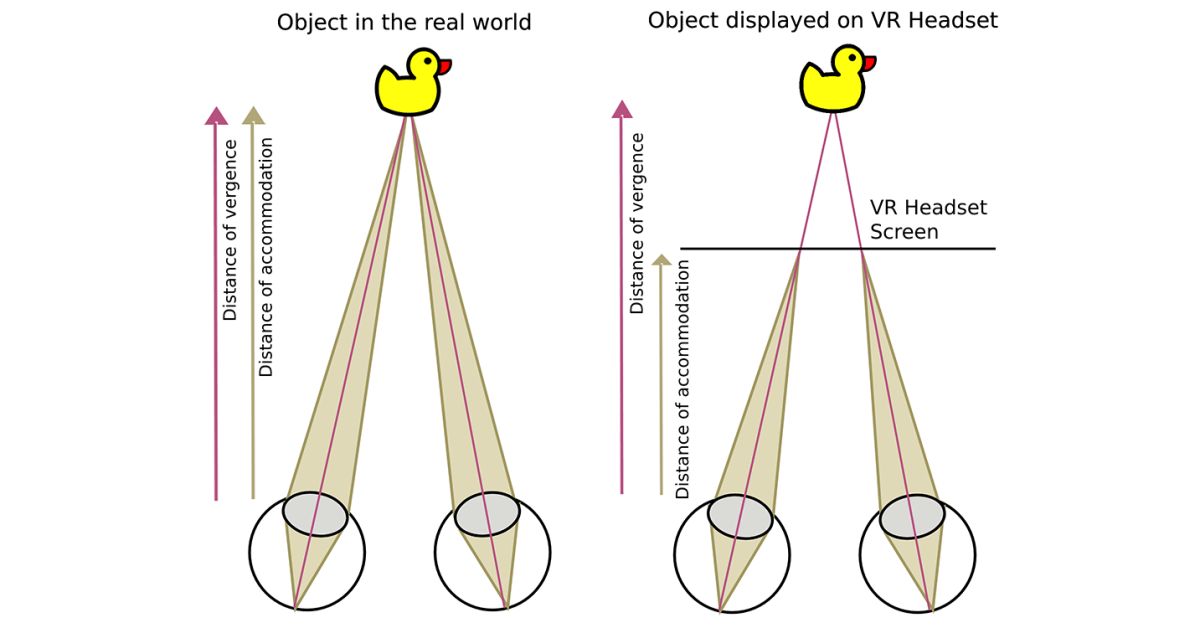Apple pushing them limits. Thanks for joining the VR/AR race.
It’s cool that they’re working on solutions to the problem, but my understanding is that VAC is not something currently solvable within the constraints of a tiny headset. At least right now. As proof, consider the fact that Apple didn’t mention a “light engine“ in their marketing, because, if they had that, you know they would market the shit out of it.
[…] a phenomenon known as vergence-accommodation conflict (VAC).
That’s because the brain is fooled into thinking that a virtual object is some distance away, when the reality, of course, is that the displays are very close to your eyes.
This is a very common misunderstanding, but “the displays are close to your eyes therefore you get VAC” is just wrong.
Yes, the display is close to your eyes, but there are lenses that move the focus plane further away. VAC comes from the fact that that focus is fixed, and looking at something close by would mean you’d still have to focus your eyes further away to see it sharply. There are (research) headsets with the displays just as close, but with something in them that let you focus on different planes (e.g. movable lenses).
deleted by creator
Interesting. VAC is one of many problems I hope will be in upcoming headsets. Meta was working on this about 4 years ago and is in the prototype stage for both high res and varifocal accommodations. It would be interesting to compare the patents and the differing approaches to the problem.





